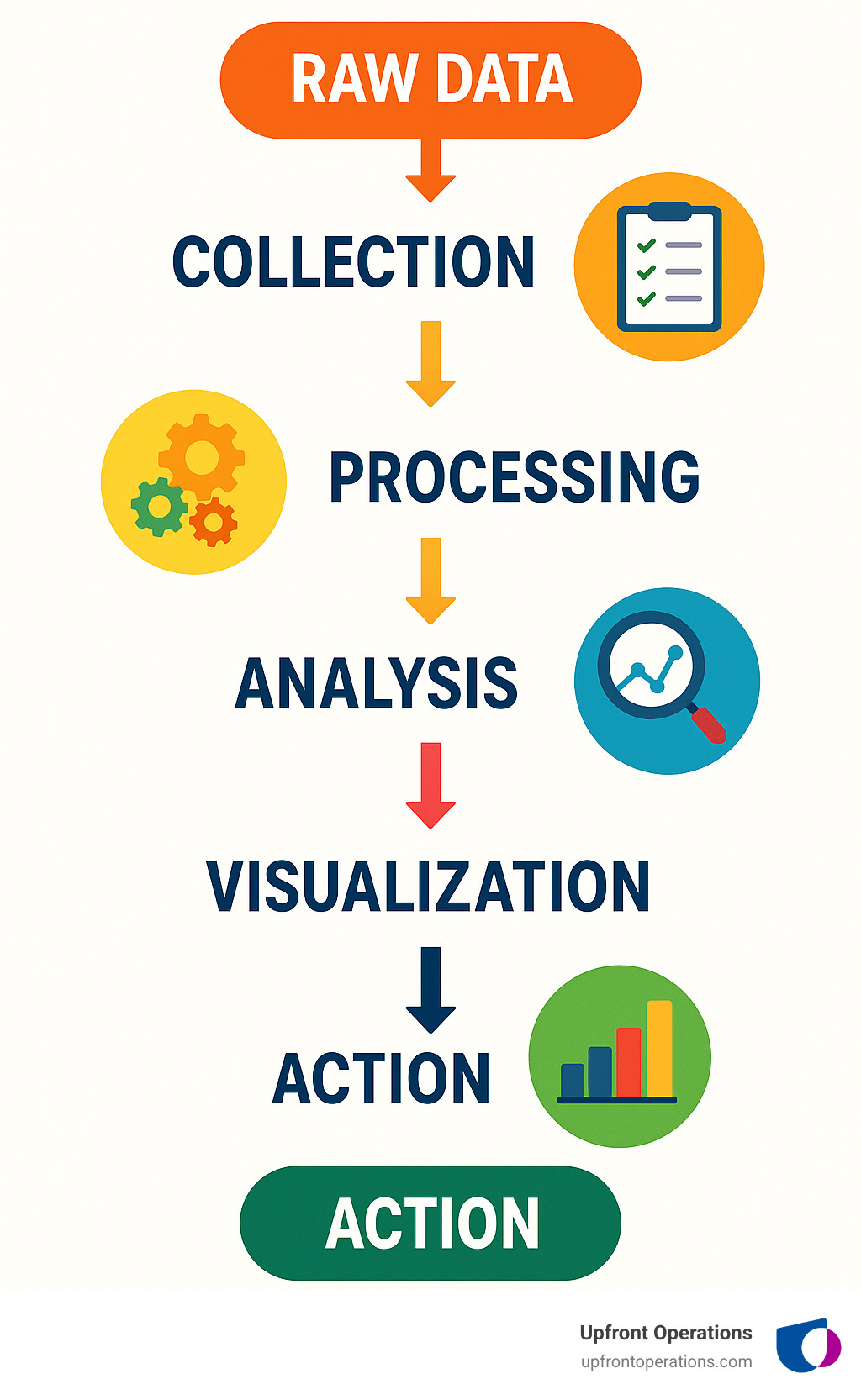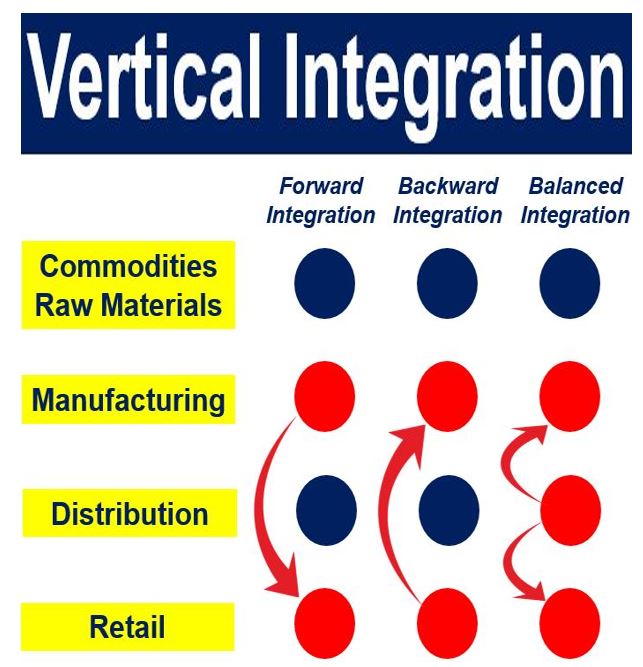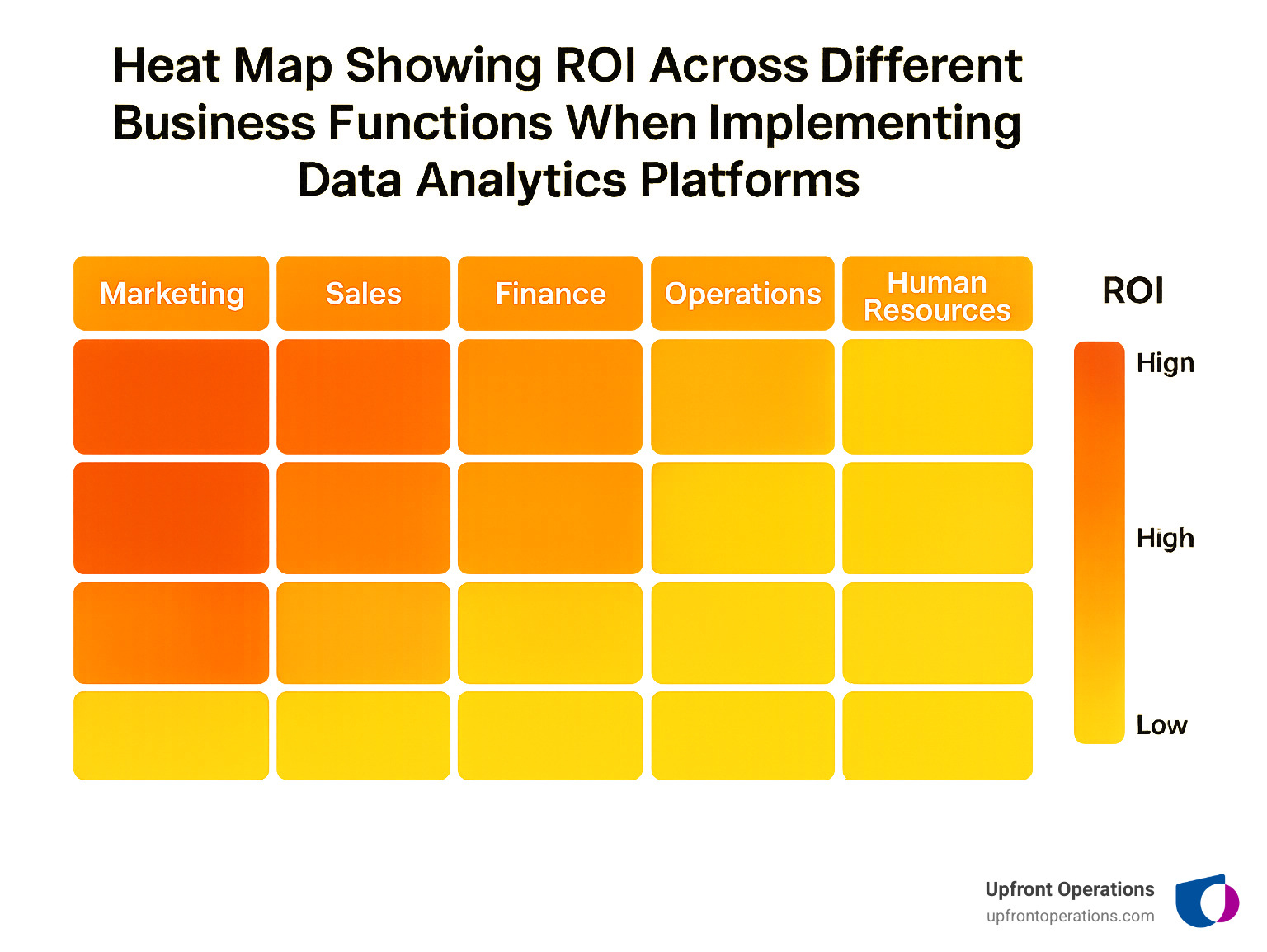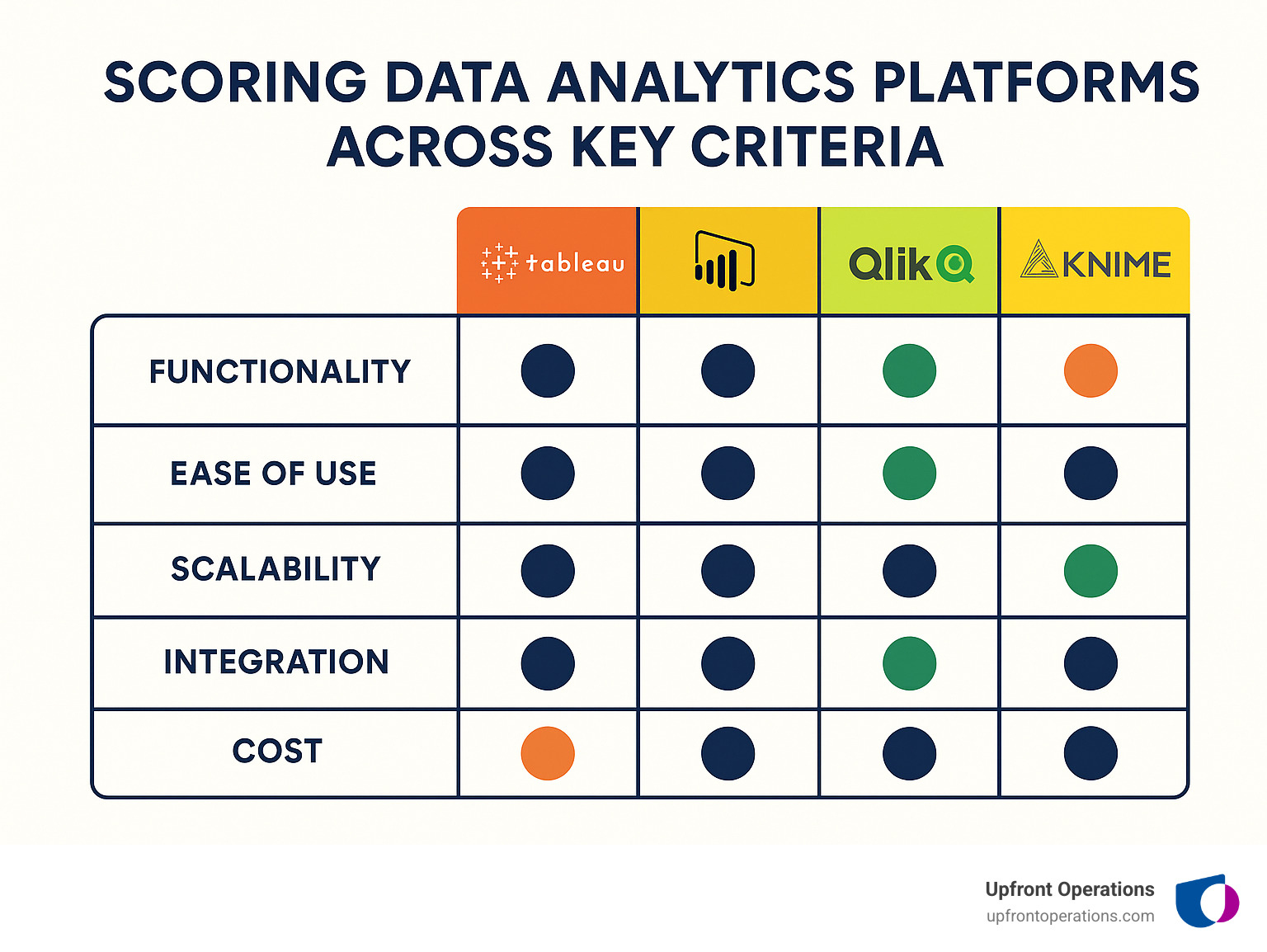From Data Chaos to Clarity – Exploring Data Analytics Platforms
Discover how data analytics platforms transform raw data into actionable insights, boost ROI, and drive smarter business d...
Discover how data analytics platforms transform raw data into actionable insights, boost ROI, and drive smarter business d...

Data analytics platforms are comprehensive software systems that help businesses collect, process, analyze, and visualize data to generate actionable insights. These platforms go beyond basic reporting to offer advanced capabilities like predictive modeling, real-time analysis, and AI-powered recommendations.
"7 out of 10 of the most valuable enterprises today are actively taking a data-driven approach, up from only 3 out of 10 in 2008."
What are data analytics platforms?- Definition: Unified systems for collecting, processing, analyzing, and visualizing data- Key capabilities: Data integration, automated analysis, interactive dashboards, AI/ML insights- Types: Cloud-based SaaS, on-premises, hybrid solutions- Popular examples: Tableau, Power BI, Google Analytics, Splunk, Looker, Qlik, Alteryx
In today's data-rich environment, businesses face the challenge of changing overwhelming information into strategic decisions. Modern data analytics platforms serve as the bridge between raw data and business value, providing tools that democratize access to insights across organizations.
Unlike traditional analytics tools like spreadsheets or basic reporting software, today's data analytics platforms leverage cloud computing, artificial intelligence, and seamless integration capabilities to handle massive datasets while delivering insights to users where and when they need them.
I'm Ryan T. Murphy, founder of UpfrontOps, where I've helped dozens of companies implement data analytics platforms that transform chaotic information into clear, actionable insights that directly impact revenue and operational efficiency.

A data analytics platform is like the central nervous system for your business data – a complete ecosystem that helps you make sense of all the information flowing through your organization. These platforms do the heavy lifting of collecting, combining, analyzing, and visualizing data from every corner of your business.
Think of modern data analytics platforms as the Swiss Army knife of data management. They bring together what used to be separate tools into one cohesive system that handles your data from the moment it enters your business until it delivers actionable insights to decision-makers.
"To accelerate the digital change journey, turn data to insights, and realize tangible business outcomes, many enterprises find that they need effective, flexible, and amplified data and analytics platforms that operate seamlessly across the organization's ecosystem of services and technologies."

At Upfront Operations, we've seen how the right data analytics platform can transform a company's decision-making process. Our on-demand data services help businesses implement these powerful tools without the typical overhead and long implementation timelines.
What makes today's platforms special? Four key components stand out:
Semantic Layer – This is the translator that turns complex data structures into everyday business language, making information accessible to everyone, not just data scientists.
AI Augmentation – Built-in artificial intelligence that works alongside your team, automatically spotting trends and suggesting insights humans might miss.
Cloud-Native Architecture – Flexible, scalable systems that grow with your business needs without requiring massive hardware investments.
SaaS/PaaS Delivery – Subscribe only to what you need, when you need it, reducing IT costs while speeding up time-to-value.
Remember the days of exporting data to Excel and manually creating pivot tables? Traditional tools served us well, but they're like bringing a bicycle to a race against sports cars. Here's how modern data analytics platforms leave old-school tools in the dust:
Traditional analytics tools struggle with large datasets, while modern platforms handle massive volumes (think petabytes) with ease. Where old tools processed data in batches with frustrating delays, today's platforms offer real-time streaming analytics.
Legacy systems often created data silos between departments, but modern platforms unify data across the entire enterprise. The days of manual data preparation have given way to automated ETL/ELT processes that save countless hours.
Static reports have evolved into interactive, self-service exploration tools that anyone can use. And perhaps most importantly, modern platforms have moved beyond on-premises limitations to accept cloud-native or hybrid deployments that free your team from IT dependencies.
As one of our clients recently told us, "Switching to a modern data analytics platform was like finally being able to see the entire forest instead of just a few trees."
Modern data analytics platforms typically include seven essential building blocks that work together seamlessly:
Data Integration & ETL/ELT tools extract information from your various systems, transform it for analysis, and load it where it needs to go. This is the foundation that ensures you're working with clean, reliable data.
Data Storage options like warehouses, lakes, or unified "lakehouses" provide the flexible foundation for all your information. At Upfront Operations, our on-demand CRM optimization services help ensure your customer data is properly structured for maximum insight.
Data Governance & Catalog capabilities keep your information secure, high-quality, and easily findable by the right people. This becomes increasingly important as your data ecosystem grows.
Analytics Processing Engine – the computational powerhouse that runs your queries and analytical operations quickly and efficiently.
Visualization & Dashboarding tools transform complex data into intuitive visual stories that anyone can understand and act upon.
Machine Learning Engine capabilities bring AI-powered predictive analytics and automated insights that help you see around corners.
APIs & Embedding functionality allows you to integrate analytics directly into your existing applications and workflows, bringing insights to where your team already works.
At Upfront Operations, we help businesses implement these components in ways that align with their specific needs. Our pipeline acceleration services can help you quickly set up the right analytics foundation without the overhead of traditional implementation projects.
Ever wondered what happens when you stop drowning in data and start swimming with insights? That's exactly what data analytics platforms deliver – real, measurable business impact that transforms how companies operate.

I've seen how the right analytics platform can completely transform a business. The numbers tell an impressive story: users who move to cloud-based analytics platforms typically see productivity jump by more than 40%. That's nearly half your workday back!
Take Lider, for example. By using Google Analytics as their single source of truth across digital channels, they slashed their cost per acquisition by 85% while improving conversion rates by an astounding 18X. That's not just incremental improvement – that's game-changing performance.
On the cost side, our clients consistently report 15-25% savings in targeted business areas after implementing analytics platforms. One mid-sized retailer we worked with in New York connected their point-of-sale, inventory, and marketing data through a unified platform. Within just six months, they boosted inventory turnover by 22% while cutting marketing spend by 15% – all while maintaining revenue. That's the power of seeing the whole picture.
For larger enterprises, the impact can be even more dramatic. Jaguar Land Rover delivered a whopping £250M in business value through data-driven insights powered by Tableau. And it's not just manufacturing – our research shows that 82% of top-performing salespeople consider their analytics tools "critical" to closing deals.
Perhaps the most powerful benefit of modern data analytics platforms isn't technical at all – it's human. These platforms break down the walls between data teams and everyone else, creating what I like to call "data democracy."
As one client beautifully put it: "Data analysis should be about asking questions, not about learning software."
Today's platforms make this possible through intuitive self-service BI interfaces that don't require technical expertise. Natural language queries let you simply type questions like "Which products had the highest profit margin last quarter?" and get immediate answers. No SQL required!
Embedded analytics takes this even further by delivering insights right inside the tools your team already uses every day. Why switch between applications when your CRM can show customer lifetime value predictions right on the contact record?
The community aspect shouldn't be overlooked either. Platforms like Tableau Public now host over one million members sharing visualizations and best practices. When we help clients implement these platforms through our on-demand services, they're not just getting software – they're joining a knowledge-sharing ecosystem.
According to scientific research on data democratization, organizations that successfully democratize data access see significantly higher rates of innovation and employee engagement across all departments.
The beauty of data analytics platforms is their versatility across different sectors. Let me share some of my favorite success stories:
In manufacturing, a global client implemented edge analytics on their production lines to analyze sensor data in real-time. By predicting equipment failures before they happened, they reduced unplanned downtime by 37% – translating to millions in saved maintenance costs and preserved production time.
For retail businesses, customer retention is gold. One national chain we worked with used predictive analytics to identify customers at risk of churning. Their targeted retention campaigns reduced churn by 24% while boosting customer lifetime value by 18%. Our CRM optimization services helped them implement these insights directly into their customer outreach workflows.
The healthcare sector has seen equally impressive results. "With AI capabilities, we can translate complex data and identify gaps quickly," reported one clinical trials manager whose team used analytics to monitor patient data across multiple trial sites. This improved compliance and accelerated the time-to-market for new treatments.
In financial services, a regional bank implemented fraud detection analytics combining transaction data with customer behavior patterns. The result? A 62% reduction in fraudulent transactions alongside a 35% decrease in false positives – improving both security and customer experience.
At Upfront Operations, we take a different approach to helping you achieve these kinds of results. Instead of massive, all-or-nothing implementations, our on-demand microservices let you start with the analytics capabilities that deliver the most immediate impact. You can begin with pipeline acceleration analytics today and add CRM optimization tomorrow – scaling your analytics capabilities as your needs evolve.
The data analytics platform landscape continues to evolve rapidly, with new capabilities emerging that push the boundaries of what's possible. Understanding these features and trends is crucial for making informed platform decisions.
When we help clients at Upfront Operations select the right data analytics platform, we focus on capabilities that will drive real business value. Today's standout platforms typically feature AI/ML automation that spots patterns humans might miss, and generative AI that makes complex data accessible through natural language interactions.
The most innovative platforms now include agentic analytics – systems smart enough to take action based on the insights they find. Imagine a platform that not only tells you inventory is running low but automatically triggers a reorder based on historical demand patterns!
Real-time streaming capabilities have become non-negotiable for businesses that can't afford to wait for overnight batch processing. Meanwhile, robust security and compliance features protect your most sensitive data while meeting regulatory requirements.
The best platforms offer scalability that grows with your business and extensibility through APIs that let you customize the experience. At Upfront Operations, we can help you implement these customizations without the headache of managing a full development team – our on-demand services mean you get exactly the expertise you need, when you need it.
| Feature | Tableau | Power BI | Looker |
|---|---|---|---|
| Pricing | $70/user/month | $9.99/user/month | Custom |
| Deployment | Cloud, On-prem, Embedded | Cloud, On-prem, Embedded | Cloud, Embedded |
| AI Capabilities | Tableau AI, Einstein | Power BI AI, Copilot | Gemini in Looker |
| Strengths | Visualization, Community | Microsoft integration, Cost | Data modeling, Embedding |
| Best For | Data exploration, Visualization | Microsoft shops, Budget-conscious | Custom applications, Embedding |
Each platform has its sweet spot. We've helped clients implement all three, and the right choice depends on your specific needs, existing tech stack, and business goals. Our CRM optimization services can integrate with any of these platforms to boost your sales operations.
AI and ML have transformed data analytics platforms from passive reporting tools into proactive insight engines. As one client told me, "It's like having a data scientist working 24/7 without ever taking a coffee break!"
"AI augmentation is a core differentiator in modern BI tools."
The most valuable AI features we've seen include automated insights that proactively flag important trends without you having to look for them. Anomaly detection capabilities instantly spot unusual patterns that might indicate fraud, equipment failure, or a sudden market opportunity.
Predictive analytics helps you see around corners by forecasting future outcomes based on historical patterns. One of our New York-based clients used this capability to predict which sales leads were most likely to convert, boosting their close rate by 32%.
Perhaps most valuable are prescriptive recommendations – AI-generated suggestions for what actions to take based on the data. This transforms analytics from "here's what's happening" to "here's what you should do about it."
The most powerful insights are useless if they don't reach the right people at the right time. That's why modern data analytics platforms excel at embedding analytics directly into the tools your team already uses.
"Embed analytics where users need insights to drive adoption."
The most effective approaches include using APIs and SDKs to integrate analytics into your custom applications and leveraging composable components that can be embedded with minimal coding effort.
Platforms with strong multi-tenancy capabilities let you securely serve analytics to different customer groups from a single instance – perfect for SaaS businesses. And white-labeling options ensure the analytics experience matches your brand perfectly.
At Upfront Operations, our on-demand services can help you quickly embed powerful analytics into your existing workflows. Need analytics in your CRM to help sales reps prioritize leads? We can set that up in days, not months, without disrupting your team's momentum.
Understanding the various pricing models for data analytics platforms can save you from budget surprises down the road. Per-user licensing (like Tableau at $70/month) provides predictability but can get expensive as you scale. Consumption-based models might start cheaper but can balloon with heavy usage.
Some vendors offer hybrid models with a base platform fee plus usage components, while open-source options like KNIME provide free core functionality with paid support options.

Implementation success depends on making smart choices about deployment options (cloud, on-premises, or hybrid), integration requirements with your existing systems, and thoughtful change management to ensure your team actually uses the new platform.
Data migration from legacy systems can be particularly tricky – we've seen companies struggle for months trying to move historical data without the right expertise. At Upfront Operations, our pipeline acceleration services can help you steer these challenges without the commitment of hiring full-time specialists.
Rather than locking yourself into expensive long-term contracts, our microservices approach lets you access specific expertise exactly when you need it – whether that's initial platform selection, integration with your CRM, or ongoing optimization to maximize your analytics ROI.
Choosing the right data analytics platform is a bit like finding the perfect apartment in New York – it needs to fit your current needs while having room to grow, match your budget, and feel like home to everyone who'll use it. Let's make this critical decision a little easier.
Finding your ideal data analytics platform doesn't have to be overwhelming. Start with these five key considerations:
First, take stock of both your immediate analytics needs and your future ambitions. Are you just starting your data journey, or do you need advanced capabilities right away?
Next, think about who'll actually use the platform. Your data scientists have different needs than your sales team or executives. Understanding these user personas helps ensure everyone can get value from the system.
Your technical environment matters too. The best platform in the world won't help if it can't connect to your existing systems and data sources.
Be realistic about budget and ROI expectations. The most expensive option isn't always the best fit, and the cheapest might cost you more in the long run.
Finally, research the stability and roadmap of potential vendors. You're entering a long-term relationship, so you want a partner who'll be around and innovating for years to come.

When our clients at Upfront Operations ask for help selecting a platform, we walk them through this comprehensive checklist to ensure they consider all the critical factors:
Start with data sources and integration capabilities. The platform should support all your current data sources, offer pre-built connectors for common systems, provide APIs for custom integrations, and handle both structured and unstructured data.
The user experience and accessibility will make or break adoption. Look for an intuitive interface that works for different user types, self-service capabilities for business users, mobile access, and accessibility features for diverse users.
Don't overlook governance and security. Your platform needs role-based access controls, data lineage tracking, compliance with relevant regulations like GDPR or HIPAA, and robust audit logging.
Calculate the true total cost of ownership beyond the sticker price. This includes implementation and training costs, ongoing maintenance requirements, and how costs will scale as your usage grows.
Finally, evaluate the support and community ecosystem. A strong user community, quality vendor support, and available training resources can be just as important as the platform's features.
"We were overwhelmed by all the options until Upfront Operations helped us focus on what really mattered for our business," shared one of our clients who needed help with their CRM optimization. Our on-demand platform selection services can save you weeks of research and reduce the risk of a costly wrong choice.
The data analytics platform you choose today needs to grow with you tomorrow. Here are the emerging trends worth considering:
Agentic AI is changing the game. Beyond just analyzing your data, platforms are beginning to take autonomous actions based on insights – imagine your system automatically adjusting marketing spend based on real-time performance data.
The shift toward data products means organizations are creating reusable assets that serve specific business needs rather than just building one-off reports. This approach delivers more consistent value across teams.
Edge analytics processes data closer to its source, enabling faster insights and reduced data transfer costs. This is particularly important if you're working with IoT devices or distributed operations.
The adoption of automation and CI/CD (continuous integration/continuous deployment) practices is making analytics development more efficient and reliable, just like in software engineering.
"Vendor-backed open-source software promotes faster bug fixes and long-term product development."
At Upfront Operations, we've helped dozens of businesses steer these trends with our on-demand sales operations support. For example, our pipeline acceleration services incorporate the latest AI-powered analytics to help you close deals faster without the learning curve of implementing these technologies yourself.
By thinking ahead about these trends during your platform selection process, you'll ensure your investment continues delivering value as technology evolves. And remember, with our microservices approach, you can always tap into specialized expertise when you need it, without committing to expensive long-term contracts.
Let's be honest – implementing data analytics platforms isn't always smooth sailing. In our work with dozens of businesses, we've seen these common roadblocks pop up time and again:
First, there's the data quality headache. Companies often find their data is messier than they thought – incomplete customer records, inconsistent naming conventions, or just plain inaccurate information. It's like trying to build a house on a shaky foundation.
Then there's the skills gap challenge. Many teams simply don't have people who understand both the technical side of analytics and the business context needed to make it valuable. As one client told me, "We bought this amazing platform, but now we're staring at it wondering what to do next!"
Change management might be the trickiest hurdle of all. People get comfortable with their spreadsheets and reports. Getting them to accept new tools and truly adopt data-driven decision-making takes patience and persistence.
At Upfront Operations, we tackle these challenges through our on-demand approach. Need help cleaning up your CRM data? Our data cleansing service can jump in without a long-term commitment. Facing resistance from your sales team? Our fractional sales operations experts can work directly with them to show the immediate value of the new platform.
Security concerns keep many executives up at night, and rightly so. Modern data analytics platforms build in multiple layers of protection:
End-to-end encryption keeps your data safe both while it's moving and when it's stored. Think of it as your data traveling in an armored car and being locked in a vault.
Role-based access control lets you be surgical about who sees what. Your sales team can access customer data while your finance team sees revenue figures – all from the same platform but with different views.
Audit logging creates a detailed breadcrumb trail of who accessed what data and when – essential for both security and regulatory compliance. One healthcare client called this their "sleep at night" feature.
Most major platforms also offer compliance certifications like SOC 2, HIPAA, and GDPR compliance. But remember, the platform being compliant doesn't automatically make your implementation compliant.
This is where our on-demand security specialists shine. Rather than hiring a full-time compliance officer, you can tap into our expertise to ensure your analytics setup meets all relevant standards without the overhead.
While virtually every industry benefits from better data insights, we've seen particularly dramatic results in certain sectors:
Financial services companies leverage data analytics platforms to spot fraud patterns, assess lending risks, and personalize banking experiences. One regional bank we worked with reduced loan approval times by 62% while actually improving their risk assessment accuracy.
Healthcare organizations use analytics to improve everything from patient outcomes to operational efficiency. A medical practice we supported used their platform to identify which procedures had the highest no-show rates, then implemented targeted reminder strategies that reduced missed appointments by 28%.
Retail and e-commerce businesses thrive on customer insights. Our CRM optimization services have helped retailers connect online browsing behavior with in-store purchases, creating truly omnichannel experiences that boost loyalty and lifetime value.
Manufacturing companies find gold in their production data. One client used their analytics platform to monitor equipment performance, predicting maintenance needs before breakdowns occurred and reducing downtime by over 30%.
Marketing teams across industries use analytics to understand campaign performance and customer journeys. Our pipeline acceleration services help marketing teams connect their activities directly to revenue outcomes, finally answering that age-old question: "Which half of my marketing is working?"
At Upfront Operations, we've developed specialized approaches for each of these industries. Our on-demand microservices model means you can quickly implement the specific analytics use cases that will deliver the highest value for your unique situation – without getting locked into expensive, long-term contracts.
The journey from data chaos to clarity isn't just about fancy technology—it's about fundamentally changing how your organization makes decisions and creates value. Modern data analytics platforms provide the foundation for this change, offering powerful ways to collect, analyze, visualize, and act on your data.
As we've seen throughout this guide, these platforms deliver real, tangible benefits that impact your bottom line:
At Upfront Operations, we're genuinely passionate about helping businesses like yours harness the power of data. We understand that not everyone needs (or can afford) a full-time data team—that's why our on-demand services make so much sense for growing companies.
Need help selecting the right platform for your unique needs? We can guide you through the evaluation process without the sales pressure you'll get from vendors. Already have a platform but struggling to implement specific use cases? Our specialists can jump in exactly where you need help, without lengthy consulting engagements.
Our approach is refreshingly different—we deliver essential microservices on-demand. This means you can access precisely the expertise you need, exactly when you need it, without the overhead of traditional consulting or the commitment of full-time hires.
For businesses in New York and beyond, we offer specialized services that align perfectly with your data analytics platform journey:
CRM optimization ensures your customer data is clean, complete, and actually usable by your team. We've helped companies transform their messy Salesforce instances into powerful decision-making engines.
Lead nurturing workflows powered by analytical insights help you deliver the right message to prospects at exactly the right moment, significantly improving conversion rates.
Pipeline acceleration through data-driven sales processes helps you identify bottlenecks and opportunities, so deals move faster and more predictably.
The data revolution is here, and organizations that effectively leverage data analytics platforms will gain significant advantages over their competition. We're excited to help you steer this journey and transform your data from a chaotic resource into a strategic asset that drives real growth.